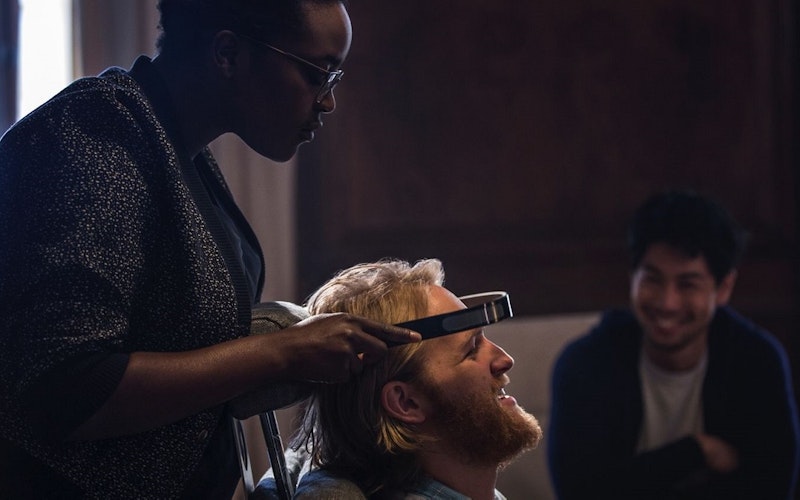
TV
Black Mirror’s Christian Suspicion of Technology
Despite society’s near-universal embrace of personal technology, a 2014 Pew Research poll suggested that a significant number of Americans have reservations about its place in our lives. Only 59 percent of those polled were confident that technological developments will lead to a better future, while 30 percent feared that the world will be in a worse place because of technological changes.
This tension in the American psyche has played out notably in film over the past several years: Interstellar, Tomorrowland, and Pacific Rim all advance in various ways the idea that humanity can overcome both its natural and self-inflicted problems through its own technological innovation. On the other side, a plethora of classic films like King Kong, Godzilla, and Jurassic Park challenge this hubristic claim. As Jeff Goldblum’s character in Jurassic Park warns: “Your scientists were so preoccupied with whether or not they could that they didn’t stop to think if they should.”
Meanwhile, in the real world, technological innovation has carried on: military drones, genetic modification, driverless cars, and ever-shrinking privacy for the sake of social connectivity and national security present unprecedented ethical challenges for a world increasingly enraptured with a romantic view of the progress of humanity through technology. This is what makes Black Mirror, now on Netflix for its third season, so important.
Black Mirror offers a criticism of society’s lack of caution with technology.
Each episode of Black Mirror is a self-contained story with its own writers, directors, and actors. The unifying factor is a criticism of society’s lack of caution with technology and a warning of the potential consequences. Perhaps the unrelentingly dark “Shut Up and Dance” is the most frightening and important episode of this season because all of the events could easily take place today. A teenager (Alex Lawther) receives an email from a group of hackers with a video of him watching pornography and a demand for his phone number and cooperation. As the teen follows directions and meets more people who are at the mercy of the same hackers, the moral of the story becomes clear: in the Internet age, there are no secrets
Black Mirror is a prophetic warning. Both explicitly and implicitly, society affirms a metanarrative about technology: that through human innovation and ingenuity, there’s no problem that can’t be solved. While Christians recognize that technology can be a gift, the gospel also holds that humanity has brought on itself a problem that it cannot solve. This is where Black Mirror aligns well with Christianity. Both recognize that “forward progress” isn’t going to save us.
In “Playtest,” another episode, a man (Wyatt Russell) tests a new virtual-reality horror game that connects to the user’s mind and alters their perception of reality, ultimately making both the main character and the viewer uncertain of what is real and what is not. Before the game begins, the man plays a virtual-reality version of Whac-A-Mole, which serves as an apt metaphor: for every problem we “solve” via technology, two more emerge in an unexpected place.
Christians should join this call for caution. In challenging society’s belief in technology to save us, Black Mirror reveals the need for the salvation-from-without that is promised in the good news of Jesus Christ.
Topics: TV, Online, Culture At Large, Science & Technology, Technology, Arts & Leisure